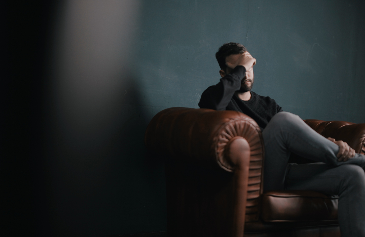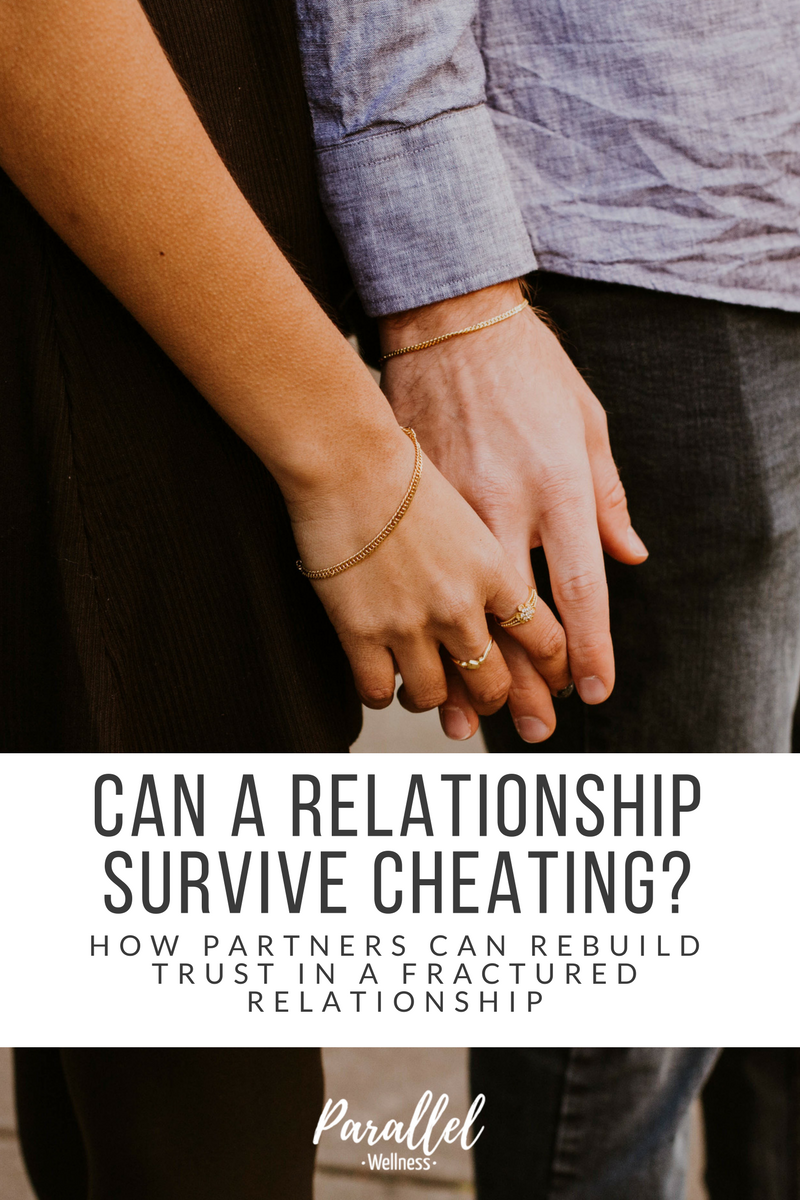Counselling for infidelity, otherwise known as cheating, is surprisingly not uncommon. A commonality among all instances of infidelity in a relationship, is the lack of trust the injured partner feels for their offending partner. When a relationship fractures due to infidelity, there are steps that must occur for healthy recovery. Most times, infidelity occurs in part by dissatisfaction (whether the offending partner is aware or unaware) in their relationship, or due to the offending partner’s dissatisfaction with themselves. Without going further into the discussion of reasons why people cheat on their partners, let’s look to the positive at the ways in which a couple can rebuild the trust in their fractured relationship, after cheating has occurred. The first steps involve the effort of the offending party.
Healing after Cheating: The Offending Party
#1 Owning Up
The first step in rebuilding trust with your partner is to own up to your behaviour, and acknowledge that what you did was wrong and hurtful. Choose a neutral time to have this conversation, one where you have time to let the information sink in and answer any questions the injured partner may have. Please note: it is up to you how detailed you would like to disclose on the incident. Disclosing too much or not enough has equally detrimental effects; this is something that will differ with each couple for their situation.
#2 Apologize
It is not enough to simply say “I’m sorry, I won’t do it again.” An apology of this nature must be whole-hearted, using thoughtfully chosen words. To accomplish this, express your apology with empathetic understanding of how specifically you have hurt them. Acknowledge the impact it’s caused the injured partner, and express genuine remorse having committed the act.
#3 Committing to Change
After giving a thorough apology, the offending partner must make a verbal commitment not to repeat the hurtful behaviour in the future. This should also be accompanied with a specific plan on how to achieve this commitment. Often times this is where counselling plays a big role in mediating and developing a plan that works for both partners. Counselling may also play a role in helping the offending partner to thoroughly reflect on their reasons for cheating, and if they truly are able to commit to not engaging outside of the relationship again. Only make this promise if you believe you are able to keep this promise. If you are uncertain about your feelings, it may be useful to take some quality time to reflect on this. Regardless, a commitment not to not cheating again during this waiting period is recommended – first to allow the offender to have a clear mind when reflecting on their relationship, and second to build trust – even if the relationship may end in the future, at least it will end on more respectful terms.
#4 Building Trust
The offending party can begin to regain the trust of their partner by maintaining their commitment to not repeat their hurtful behaviour. This can ultimately be proven when the offending party resists the temptation to reoffend if a similar situation is ever presented.
It is not only the offending party that must put effort into rebuilding the trust in the relationship to help repair the fractured relationship. The injured party must also take steps to overcome their emotional responses and new insecurities in the relationship. It is not uncommon for the injured party to feel insecure about what their partner is doing, where they’re going or who they’re with. However, allowing time and healthy processing allows them to accept the incident, forgive their partner, and establish a new concept of their relationship. This is also a good time to discuss your definitions of cheating as a couple, so as to avoid potentially hurtful situations in the future.
A couple who endures an incident of cheating will not be the same couple after the fracture has been healed, but this is not necessarily to be seen as a negative. There is always a reason behind one’s behaviour, and perhaps part of the relationship was not meeting either partner’s expectations. As previously mentioned, the purpose of this article in not to discuss the reasons behind cheating; however, it should be noted that because infidelity impacts a relationship in the utmost way, it is worth noting that the act of cheating, for reasons that vary, will force both parties to re-establish their relationship in order to mend what has been broken. On that note, I will discuss the steps the injured party must take in order to forgive and move on from the incident.
Healing after Cheating: The Injured Party
#1 Assess the Risk of Reoffending
The injured party must be able to assess how likely their partner is to reoffend. Forgiving their partner too early could lead to unresolved issues and built up resentment, as processing time and a thorough apology were not received yet. As the injured party, you must believe your partner has apologized empathetically, and believe their commitment to not reoffend.
#2 Allow Opportunity to Rebuild the Trust
The hardest part for an injured party is to attempt to forgive their partner by giving them an opportunity to prove their commitment. By allowing your partner to expose themselves to a similar situation they offended in, will be the ultimate test, as well as the ultimate risk, to see if their partner will honestly uphold their commitment. The injured party is at their utmost vulnerability of being hurt during this time, but it’s a chosen vulnerability in the hopes that a positive outcome will occur that will greatly rebuild the trust in the relationship. This step is often anxiety provoking, so having relaxation strategies will be helpful. Individual counselling may also be helpful for the injured party to help process the cheating incident. Clients often report that worry about sharing these private aspects of their relationship with friends and family, for fear of judgement should they choose to rebuild their relationship. As an unbiased and supportive professional, a counsellor will provide you with the space to share the good, bad, and the ugly as you work through this phase of your relationship, individually and as a couple.
We believe that there is a very good chance that a couple will reconcile as they continue to maintain their commitments towards repentance and towards forgiveness. It is crucial that each partner stay open to the other’s attempts to move forward. As the trust rebuilds, so will intimacy and the reestablishment of a new relationship. A couple can grow and strengthen having overcome such a determent to their relationship, but it takes times, commitment, forgiveness and opportunity to fully rebuild trust and move forward.
~ Christine of Parallel Wellness
If you and your partner are looking to reconcile and heal your relationship after an incident of infidelity, our counsellors can help.
Hey there!!
I'm Meredith MacKenzie, the founder of Parallel Wellness and a Registered Clinical Counsellor. Simply put, I love to talk about psychology, emotions and all the things that make us human. My goal for this blog is to share information, resources and a fresh perspective on what brings clients to our practice.


